#tian xiaojie
Photo
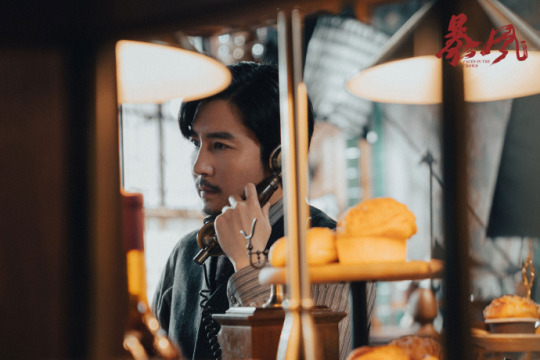
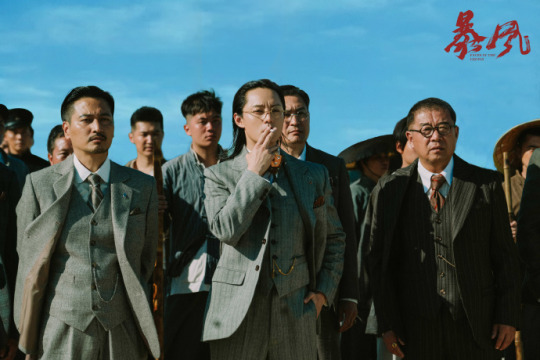
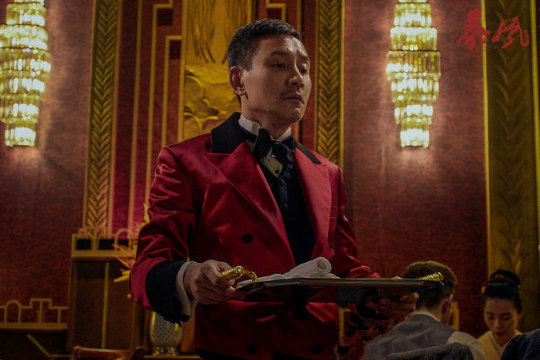
Caught in Whirlwind/暴风 will be in theater on April 14th, 2023. (So glad that three of my favorite cactors are in this film!)
#wang longzheng#yin zheng#tian xiaojie#andrew yin#caught in whirlwind#faces in the crowd#暴风#cmovie#cdrama#posts*#i follow all three of them on weibo and my timeline is like flooded with this film lol
8 notes
·
View notes
Text
Legend of Zanghai official announcement

The Legend of Zanghai Official Weibo account posted, (which GG reblogged):
Use your body to stir up the storm, strategize and sharpen your edge. Searching for the truth step by step, undercurrents surge to reveal the true heart.
Chief Director: Zheng Xiaolong
Starring: Xiao Zhan
Director: Cao Yiwen
Screenwriter: Zhao Liuyi
Starring:
Zhang Jingyi
Zhou Qi
Huang Jue
Friendly appearances:
Yu Nan
Special appearances:
Qiao Zhenyu
Tian Xiaojie
Sha Baoliang
Starring:
Liang Chao
Xing Minshan
Yang Yutong
Shao Wen
Yang Fan
Legend of Zanghai officially announces the launch.
44 notes
·
View notes
Text
8/19/20 progress
I already knew this I supposed... but further confirmation that
It’s easier to immerse in a new material, if you look up keywords for the first episode or chapter. (Those first chapters are when a lot of the genre specific and story specific words pop up, so if you catch the keywords then it will be easier to follow all main-plot information in the following material).
immersing more DOES improve comprehension the more you do it.
I am watching Xin Xiao Shi Yi Lang (The Shaw Eleven Lang). I first tried to watch it in December, then in general I tried to watch shows in only-chinese more in January-May. In those months, shows got consecutively a little bit easier to follow without looking words up - although mostly, each new genre the difficulty spiked again a bit. So difficulty was like: 10, 8, 7, 8, 6, 8, 6, 4, 7, 5, etc... where 10 is most difficult to follow. I do notice that overall, regardless of genre differences/show differences spiking difficulty back up, I am getting overall better at some things.
My reading speed, ability to catch words quickly that I’ve studied, ability to read through grammar easier, ability to read through *some grammar at a quicker speed, ability to look away from the screen more and still follow the plot (so listen comprehension is better, reading speed to catch up to when I look away is improved). Overall, just the comfort level of the activity - it doesn’t feel nearly as draining to immerse in only-chinese, it doesn’t feel like I need to use a translator to look up key words if I don’t want to. As in I feel I can at least minimally follow a plot even if I skip looking up words that catch my attention. I notice overall that I have more ability to figure out at least SOME words from context alone in bigger sentences - so not just verbs. And a super noticeable skill that has improved: my ability to notice name/place/proper noun introductions is WAY IMPROVED. For the whole year of learning Chinese, I really struggled immensely with recognizing when words were a name of something instead of a noun/adjective/verb to figure out. The only time I could tell was if someone said ‘zhe she’ or ‘mingzi’ or ‘jiao’ or ‘jieshao’ first to clue me in that it was about to be a proper name, or for people hearing ‘xiaojie, gongzi, shifu, shidi, shijie, shixiong, xiong, xiansheng, laoshi’ and eventually catching on that it’s a name. But places and named objects like swords or specialized tools like shovel types or named reports completely escaped me.
I remember that the first time I watched Xin Xiao Shi Yi Lang, I could only follow the fact “there’s a sword they want, they know each other, and a princess (?) is running away from her fiance (?) who wants the fancy sword her family owns that everyone seems to want.” Which... to be honest, I do think that’s the minimum gist of the plot, so I did pretty well for my no-lookup guess of what was going on back in December. But this time when I watched, I looked up a lot of words more for double checking my correct comprehension or specifying details, not because I needed it to follow the plot. And for names, I just caught them: We’ve got Xiao Shi Yi Lang, Lian Chengbi, SiNiang, Shen Kunbi (the princess, I’m not sure I caught the second part right unless I can see it’s characters on screen), Xiao gongzi (the evil small woman who also looks like Lian Chengbi sometimes?), Jiao Zhu (Lord Jiao, the snake clan’s leader), the empress (? or queen, Shen family, I can’t quite catch if the first part of her name is a title or her name). The 4 great masters that Yi Lang, SiNiang, and Xiao gongzi just annihilated from importance... I caught the servant of Shen’s name too, the girl who begged Lian-xiong to take her with him to find her princess, but they haven’t said it enough for me to remember it.
I also catch that they’re mentioning the named place of the region often (Jiang something), the Shen clan area, and the sword does have a name (which I recognize the characters of but can’t remember the pronunciation of). I caught that Xiao gongzi is from a clan/kind of people too, the Heaven-something. All of this is a ton more specific detail-wise than I was ever able to catch back in December. Some of this is because I know new words, some is because I can read/comprehend faster so I have the TIME to catch other low-hanging-fruit details I should understand, some is because I’ve gotten much better at recognizing proper names versus nouns/adjectives/verbs. I’m really happy about the proper noun stuff... it was probably the HARDEST thing for me to distinguish in written chinese, whereas any other grammar issue was a bit perplexing but noticeable to me if I could just get extra time to read through it. I think again I probably have Tamen de Gushi novel to thank for this... it’s writing style used first person so it was easy to follow, but many other characters were always name-mentioned without usual introduction scenes, and yet others were left unnamed and so I had to get used to ‘that person’ and ‘aunt and uncle’ and ‘the gang of friends’ and get better at recognizing vague characters being talked about too.
I think a lot of these comprehension improvements in the last 8 months were partially just WATCHING more chinese-only stuff, and also doing 2000 word cards and reading in some short bursts (I’d read 15 chapters of Tamen de Gushi, a few chapters of Priest novels, and Mandarin Companion Sherlock).
In addition, I notice a decent increase lately from maybe May-August. I think what I added recently, that’s been helping - listening to chinese audio, and flashcards with sentences.
For Chinese audio I have 2 main sources - audiobooks/audiodramas where I just play them whenever I want either for background noise or to listen to and try to follow the plot, and an audio of Spoonfed Chinese sentences with english then chinese sentences so its very comprehensible audio ‘flashcards’ i can just play in 30 minute chunks in the background for ‘review’ or ‘exposure’ to i+1 sentences. This audio addition to study has been super easy to add, I just try to play it more. I think the audiodramas/books are helping me solidify the words I DO know, get more familiar with what ‘sounds right,’ increase my listening speed comprehension, and help set ‘phrases’ stick better in my head. The audio 30 minute ‘flashcard’ loops are like audio reinforcement of the sentences in anki I’m doing, and they give me more audio-only review and exposure compared to anki - helping me work on listening comprehension, and on hearing easy new i+1 sentences I can always comprehend and learn a little new stuff from each day. I really love big audio files of ‘flashcards’ and I discovered the study idea back when I studied japanese (the website japaneseaudiolessons.com was basically entirely based on this concept of teaching/study, and also to a degree I think Michael Thomas and Pimsleur are just paid versions of this method).
They let you be introduced to new things to learn in a very easy to understand way building on what you already know, and review in a way where the flashcards remind you of the translation in case you needed it. Its very low effort, but it really reinforces what you’ve learned and helps you pick up new stuff. (And it’s higher effort if you also try to repeat it and practice speaking). However, audio flashcard files I think work BETTER if you try to pay attention - at least if you hear any new sentences. That way you actively TRY to figure out what you expect the answer to be before you hear it, and note what the actual answer was so you remember this new word/grammar. Whereas reviews with this audio, you can pay attention a bit less actively, since its only going to be important to focus if you CAN’T automatically guess what the right answer is - in which case, listen more to that piece of audio. But if you’re replaying it over and over, even if you only actively pay attention some of the time, you’ll pay attention enough to pick up new info, and passively listen to things you comprehend already enough to review them. So overall, its definitely lower effort than listening to audiobooks/audiodramas and trying to purposely follow the plot. (Although I think passively listening to audiobooks/audiodramas is the easiest task, I don’t think it efficiently teaches you more as quickly as listening to audio-flashcard loops since in audiobooks/dramas you comprehend less).
Chinese flashcards with sentences in anki - right now all my anki flashcard decks use sentences mostly. The Spoonfed Chinese deck is helping with words IN context and WHAT contexts to correctly use different words. This is helping strengthen the foundation of words I know. Likewise, my HSK deck in anki also has sentences and explains individual character meanings, so that’s also reinforcing it. I’m mostly using these decks for exposure/recognition, so I’m not working on trying to correctly speak/produce such sentences very much (just occasionally). So they aren’t helping a ton at improving my speaking/production grammar. But they are helping me a lot with comprehending better, and with remembering the proper tones in words I know, and the proper words to use for different situations (especially with near synonyms). I think these cards are making my reading speed comprehension in chinese better (just like reading more in chinese was helping).
I have also been reading more - without a dictionary when possible, because I’m lazy. I haven’t been reading as much as I want, but I do feel what I’m doing is challenging myself. (I guess I just wish I challenged myself more ToT). I read chapter 1 of MoDu with no dictionary twice - the second time was much easier, somehow. I read part of chapter 1 of Guardian, part of chapter 1 of Tian Ya Ke. I read a little bit of Tamen de Gushi with no dictionary, I read a Mandarin Companion book. I notice that in general reading is helping me recognize phrases like how authors tend to word descriptions of body movements or appearance, or descriptions of emotional displays (like he rubbed his neck, put his hand in his pocket, face grew pale, eyes glanced away, mouth curled upward in a slight smile, etc). Those descriptions are getting much easier to recognize and read quickly. Also, I notice with more difficult novels, I’m getting better at roughly guessing unknown words with unknown characters - the hard part is getting myself to focus on paragraphs where I see a lot of unknown characters, because my eyes would prefer to just skim over them all. I have to make myself actually look, find the words I do know and grammar I recognize, then actually look at the unknown characters for clues of if they’re part of a 2-part version of a word I know the other character in, if they’re characters I can guess roughly the meaning of, if I can guess their sound or not, and what their word type is grammar wise if that will help me - is it a name, title, verb, adjective, noun.
Usually I can skip adjectives without losing the main idea of the plot, but I still slow down and try to figure out the adjective if it keeps popping up - it means the author relies on it a lot. Names automatically get easier once I realize they’re just names to recognize. And unknown characters part of 2 character words, if i CAN guess a meaning from context, are generally the most important for me to pick up. Because they usually contribute to plot or details, and they’re words I actually can keep relying on later on in the writing if I figure them out. As usual... dialogue is my strong suit, and the easiest part to follow. Action descriptions of things going on are the second easiest. Then finally, long descriptions of places/people/economy/looks/situation/group etc are still my weakest point since those parts are noun and adjective heavy, usually with less already-known general words I can lean on to help me.
---
I am really pleased about my show comprehension improvements though. I’m thinking, as long as I look up the words in new shows for the first couple episodes, I should be able to get into new genres/new shows without them feeling draining anymore.
I’m going to keep working on my flashcards until they’re in the 2000s, to match up with my original old single-word 2000 cards. Then maybe focus more on reading. I’d like to get more comfortable reading novels (even though lol I know that’s probably THE HARDEST of my comprehension goals).
Also surprisingly I’ve been really picky about my tones lately, so I’m spending probably 1/3 of my study time overall just on focusing on tones - tone training, pinyin pronunciation basics again, listening carefully. I noticed my active vocabulary has decreased a little these past couple months... but I suspect that’s mostly because I’ve NOTICED where I was incorrectly using the wrong word for a situation, so now my mind isn’t auto-supplying a word to use unless I’m relatively sure its supposed to be used for that situation. So in the long term it’ll probably be a good thing. Likewise, words are auto-showing-up in my mind less to use if the tones are less solid.
I’ve been using the Hanzi flashcard deck on and off again (anki version). I’m contemplating adding my own pronunciation mnemonics to them, so they’ll be more thorough.
Other notes:
- nothing seems to make those words like ‘turan’ ‘suiran’ ‘jinran’ ‘shihou’ ‘zhiqian’ ‘ranhou’ ‘ziran’ really seem to stick for me except reading/listening more. They’re all ‘explanation’ words usually used in telling stories or descriptions, and since they’re not directly anything you could ‘draw/visualize’ then for me I find I just need to be exposed to enough examples of them being used.
- similarly, the way authors/storytellers say descriptions of people moving hands/eyes/heads/looks really is something to just... get used to. All the words are simple, its just getting used to seeing them in those combinations.
- i still have no idea if ‘repetitive listening’ of 50-100 times helps a LOT lol. But i do think listening MORE in general, definitely helps to a degree. Especially once you’ve got 1000-2000 words you’re vaguely familiar with. That means there’s a lot of words you’ll eventually Recognize when listening, even if you can’t comprehend full sentences.
- immersing in content you’re already familiar of the context of, is always easier. whether its because you read it/watched it in english before, or because you looked up keywords/summaries for the first couple episodes before diving in. That said, I prefer to also do some immersion where i go in knowing absolutely nothing (so if i need to, i’ll look up keywords while watching). Because i like to see exactly how much i can understand when i had nothing to rely on going into it. That said, that’s more for gauging progress. For actually PICKING UP NEW WORDS from a show or audio, I think having context ahead of time improves the ability to pick up new words.
- if you’re learning a language that happens to make audiodramas about stuff you like??? I 100% recommend checking them out! Chinese has been a treasure trove for me, because if I like a book or show, then there’s a corresponding book/show, and there’s usually also an audiodrama, and usually also fanmade dialogue-containing music video edit videos and AU edit videos, and regular music videos, and osts.... and you can find ONE story you like and have like 200+ hours of material to sink into. If I like one story (lets say MoDaoZuShi by MXTX) then I can watch a drama, read a novel (in chinese and english, in traditional or simplified characters), listen to an audiodrama, listen to ost, find a ton of music video edits with dialogues, find fanfic in multiple languages, watch donghua if I wanted animation instead of live action. And also check out any of the author’s other works. Same thing with getting into something by Priest - I can watch Guardian, listen to fanmade audiobooks, find music video edits with dialogue, listen to the ost, read the novel in traditional or simplified or english. And several other priest novels ALSO have audiodramas along with all this other stuff. A person can easily find a visual show, an audio drama/book, a text only novel, and a picture-text manhua all about some story they like. So they’ve got this very easy to find ‘study material’ to immerse in a variety of different ways. Whether they ‘need’ practice in each area, or are just more comfortable with say ‘audio’ or ‘manhua’ instead of reading novels, they can still find stuff to enjoy. When I studied french I always found reading material I liked, but I should have been looking harder for other materials in other areas, like I am in chinese. Likewise, in japanese I could often find visual shows or manga i wanted to check out, but I had trouble finding audio-only I was interested in... I could have been looking for a broader variety of materials than I did at the time.
2 notes
·
View notes
Quote
We all wear masks. But that only makes it harder to tell the difference between truth and lies
Behind the Mask by Sakurablossom009 (FF.net)
Words: 170K
Rated: T
Last Updated: Dec. 2013
Characters: Naruto U., Sakura H., Kakashi Hatake
Pairings; NaruSaku, ShikaTema, one-sided SasuSaku
A Naruto AU inspired by Crouching Tiger, Hidden Dragon. Hatake Kakashi, a formidable shinobi and the current owner of the Tian Tang Jian, has decided to relinquish ownership of the legendary sword to his friend, Tsunade. Naruto and Sakura do not understand the reasoning behind their laoshi’s decision, but as his disciples, they agree to journey from Konoha to Peking in order to make the delivery. Trouble brews as the famed sword get’s stolen, a man once thought to have been dead makes an appearance, and the two shinobi get caught up in the arranged marriage of Feng Temari and Uchiha Sasuke.
Thoughts: There is so much to love about this fic. I was intrigued by the title and description, further drawn in by the Crouching Tiger, Hidden Dragon bit, and stayed out of pure curiosity as to how the author was going to mix the Chinese world of Crouching Tiger, Hidden Dragon into the Japanese world of Naruto. I’m pleased to say that the results were far better than I had anticipated. Naruto locals, such as Konoha and Sunagakure, exist alongside locations such as Peking and Zhili. Characters use Chinese honorifics, such as laoshi, sifu, xiaojie, and furen. Shinobi and every day citizens seem to co-exist mostly in peace. Naruto is still a jinchuuriki, but the history of the tailed beasts seem to be different in this world. Shinobis in this world seem to be like ANBU in the Naruto world; they wear masks and have shinobi names. I also adore the fact that Naruto's shinobi name is Zhong Hu (Loyal Fox) while Sakura’s is Wu He (Dancing Crane). There was a lot of thought put into creating this world and I do love me some world building. I also love the infusion of Chinese culture into the Naruto world as well.
Sadly, it seems to have been abandoned, but you never know! I’ve seen authors come back years after starting abandoning a fic. Regardless, I’d recommend everyone to give this pic a read, I absolutely adore it.
#naruto#narusaku#shikatema#uzumaki naruto#haruno sakura#hatake kakashi#fanfic#narusaku fanfics#crouching tiger hidden dragon
0 notes
Photo
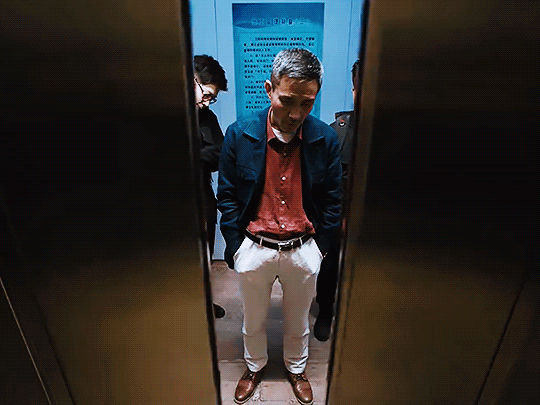
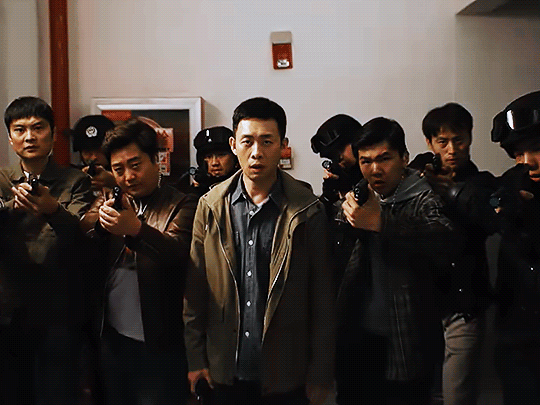
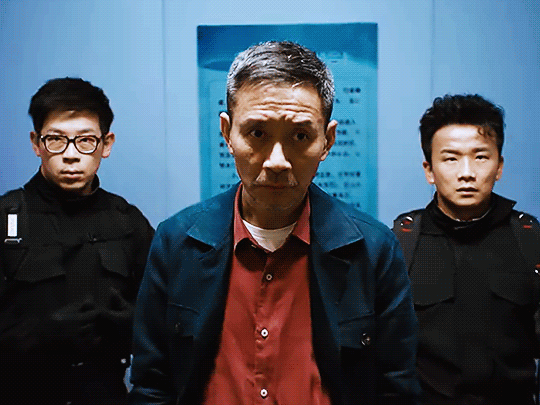
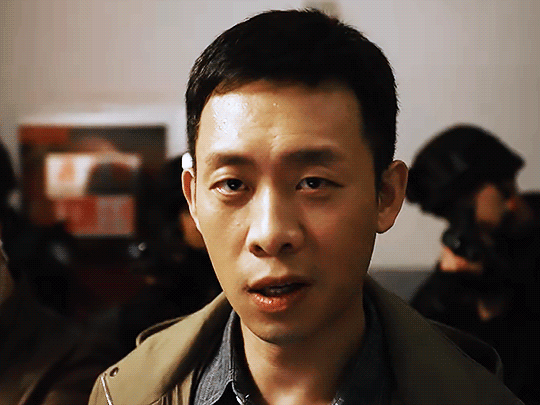
Be Reborn | 重生之门 (2022), Episode 5
#there's like 3 people in the fandom but lol @ my lack of resistance of giffing middle aged men#be reborn#重生之门#asiandramanet#chinesemedia#chineseartistsinc#cdramaedit#cdramanet#cdramagifs#cdrama#tian xiaojie#zhang yi#ding shenghuo#luo jian#crimeedit#tvedit#berebornedit#userkunedits
39 notes
·
View notes
Text
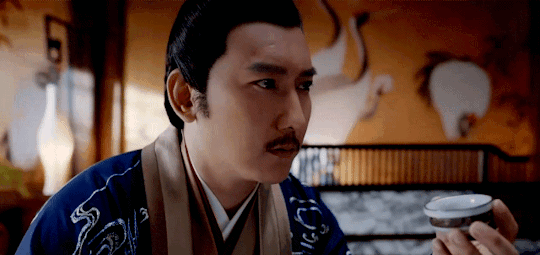
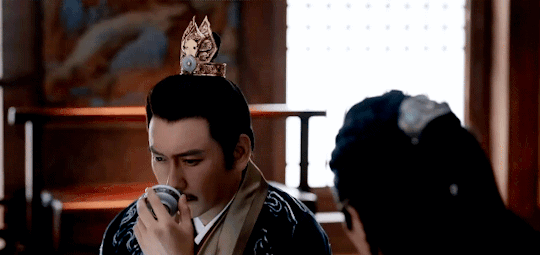
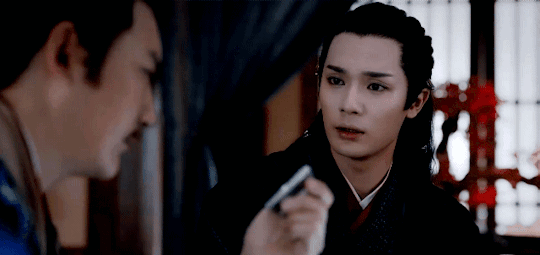
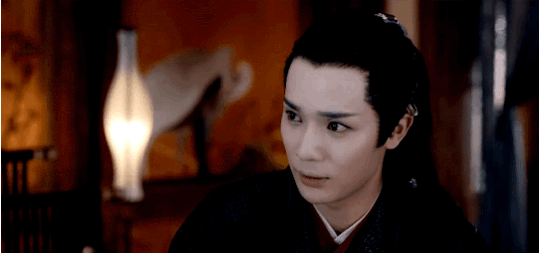
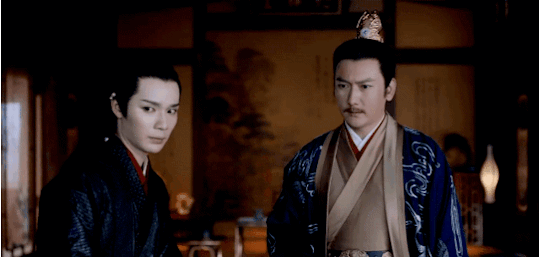
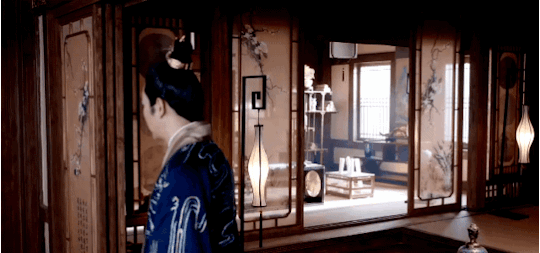
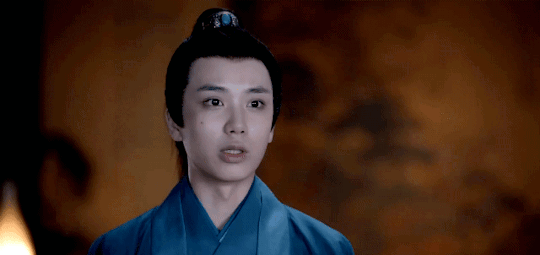
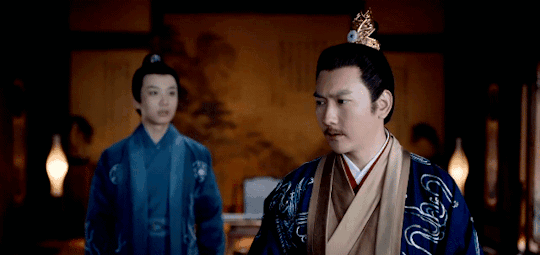
One son after another, it keeps on coming
We have a new nickname for Zhaoxie! It's Eve & Share, because it sounds like Yifu & Xie'er!
Bonus:
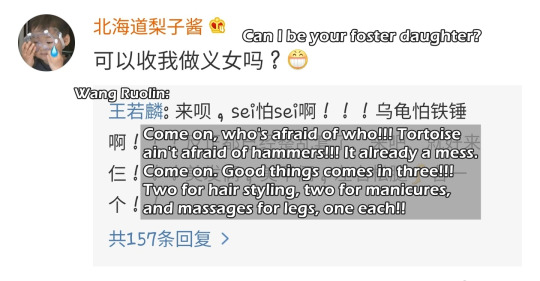
#山河令#天涯客#shan he ling#tian ya ke#word of honor#cdrama#chinese drama#caps#ep21#zhaoxie#找鞋#zhao jing#wang ruolin#xie wang#scorpion king#li daikun#woke up in cold sweat this morning a voice inside my head went: xiaojie you havent logged into the zhaoxie tag for 2 days whats up with tha#so i immediately made a gif set to redeem my position in this universe 😌😌😌#wang ruolin laoshi is so damn funny theres a billion comments of him replying to shipping comments#he calls it patrolling as in police patrol to keep everyone in line 😂😂😂 sometimes he be patrolling at 3am replying to zhaoxie comments
35 notes
·
View notes
Text
GIF DIRECTORY FOR ACTORS BORN IN 1986 OR EARLIER (i picked 1986 simply because i want to include yin zheng)
Do NOT reupload/repost my gifs!!!
bold font with* means there are more than 15 drama/film sets for at least 2 of their works
cactors
Chen Jianbin
Chen Minghao
Huang Xiaoming
Ji Chen
Jiang Wu
Li Naiwen
Ning Li
Qin Hao
Tian Xiaojie
Wang Chuanjun
Wang Cong
Wang Kai
Wang Longzheng
Wang Qianyuan
Wang Xiao
Xu Zhengxi
Yin Zheng*
Yu Hewei*
Zhang Luyi*
Zhang Songwen
Zhang Yi
kactors
Ha Jung Woo
Ha Seok Jin
Heo Sung Tae
Ji Sung*
Jin Goo
Jin Seon Kyu
Jo Woo Jin
Ju Ji Hoon
Jung Sung Il
Kim Dong Wook
Kim Nam Gil
Kim Sung Kyu*
Lee Hee Joon*
Lee Sung Min
Ma Dong Seok
Park Hae Soo*
Park Hee Soon
Shin Ha Kyun
Shin Sung Rok*
So Ji Sub
Sol Kyung Gu
Yoo Ji Tae
jactors
Junichi Okada
MIYAVI
Do NOT reupload/repost my gifs on any sites!!!
13 notes
·
View notes